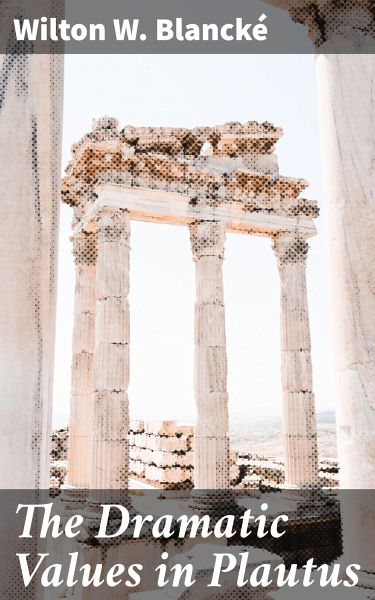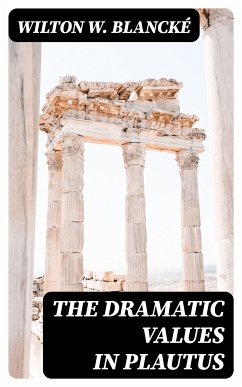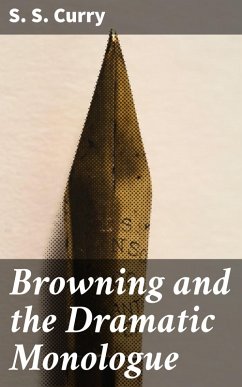
The Dramatic Values in Plautus (eBook, ePUB)
Uncovering the Theatrical Genius of Roman Comedy
Versandkostenfrei!
Sofort per Download lieferbar
0,49 €
inkl. MwSt.
Weitere Ausgaben:

PAYBACK Punkte
0 °P sammeln!
In "The Dramatic Values in Plautus," Wilton W. Blanckv© delves into the intricate tapestry of Roman comic theater, meticulously analyzing the works of the playwright Plautus. Blanckv© employs a rigorous literary style, combining textual analysis with historical context to reveal how Plautus's unique blend of humor, character archetypes, and social commentary contributes to the enduring significance of his plays. By examining elements such as plot structure, dialogue, and audience engagement, Blanckv© illuminates the dramatic values that not only entertained ancient Rome but also laid the gr...
In "The Dramatic Values in Plautus," Wilton W. Blanckv© delves into the intricate tapestry of Roman comic theater, meticulously analyzing the works of the playwright Plautus. Blanckv© employs a rigorous literary style, combining textual analysis with historical context to reveal how Plautus's unique blend of humor, character archetypes, and social commentary contributes to the enduring significance of his plays. By examining elements such as plot structure, dialogue, and audience engagement, Blanckv© illuminates the dramatic values that not only entertained ancient Rome but also laid the groundwork for contemporary theatrical practices. Wilton W. Blanckv©, an esteemed scholar in classical literature and drama, draws from a rich background in Roman cultural studies. His extensive research into ancient theatrical forms, alongside his passion for comedy's role in societal reflection, informs the nuanced perspective he brings to his analysis of Plautus. Blanckv©'s scholarly rigor is complemented by his understanding of the theatrical milieu of Hellenistic influences that shaped Plautus'Äôs work, offering readers a comprehensive view of the genre's evolution. This book is a must-read for students, scholars, and enthusiasts of classical literature and theatre. By engaging with Blanckv©'Äôs insightful analyses, readers will discover the timeless relevance of Plautus's comedic artistry and its implications for understanding the dramatic values that endure in modern storytelling.
Dieser Download kann aus rechtlichen Gründen nur mit Rechnungsadresse in A, B, BG, CY, CZ, D, DK, EW, FIN, F, GR, H, IRL, I, LT, L, LR, M, NL, PL, P, R, S, SLO, SK ausgeliefert werden.













